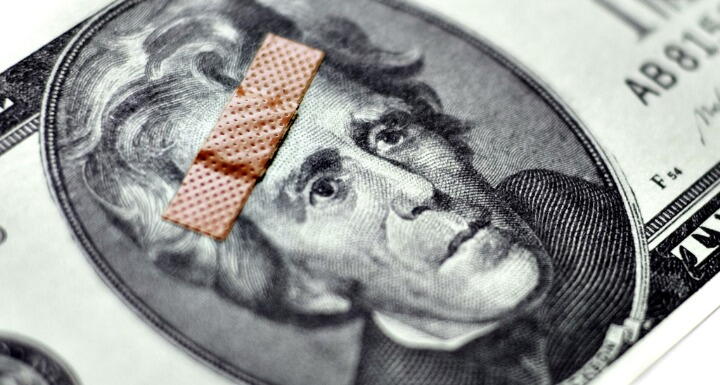Recovering Punitive Damages in North Carolina Personal Injury Cases

When an accident happens due to someone else’s negligence, an injured person is able to recover compensatory damages from the at-fault party or their insurance carrier.
For instance, if an innocent driver is injured in a car wreck, the individual can pursue a claim for monetary compensation related to medical bills, lost wages, and pain and suffering. In certain situations though, North Carolina law allows the injured party to recover punitive damages. Punitive damages are above and beyond compensatory damages and meant to punish and deter wrongful conduct. This article provides an overview of punitive damages in North Carolina personal injury cases.
The Role of Punitive Damages
Again, when one is injured due to the negligence of another, the injured party is entitled to recover compensatory damages. Compensatory damages are designed to make the injured person “whole” under the law. The payment of money is how North Carolina law compensates for bodily injury and death to “balance the harm” incurred.
With personal injuries, multiple types of damages may apply. Damages may include incurred medical expenses, future medical expenses, lost wages, diminished earning capacity, pain and suffering, scarring or disfigurement, loss of use of part of the body, or the permanency associated with any continuing injuries. Although money cannot fix these situations, it is up to the parties, a judge, or a jury to determine a reasonable amount of compensatory damages based on the specific facts of the case.
Punitive damages, in contrast, are not meant to “compensate” an injured party or to “make them whole.” Punitive damages have the specific goals of (1) punishing defendants for egregiously wrongful acts, and (2) deterring the defendant, and others, from committing such wrongful acts. So, the policy goals are to punish and to deter.
Punitive damages, therefore, have a societal benefit: they help prevent future egregious wrongful acts from happening because such acts will be punished by requiring payment of additional (and perhaps substantial) monetary damages.
The Types of Egregious Conduct to Which Punitive Damages May Apply
Under North Carolina law, punitive damages can only apply if there are specific aggravating factors present: fraud, malice, or willful or wanton conduct. “Willful or wanton conduct” is defined as: “the conscious and intentional disregard of and indifference to the rights and safety of others, which the defendant knows or should know is reasonably likely to result in injury, damage, or other harm.” See N.C. Gen. Stat. § 1D-5.
Notably, this requires more than “gross negligence,” and punitive damages must be proven by “clear and convincing evidence.” Meaning the burden of proof placed on the plaintiff is higher because it is not simply by a preponderance of the evidence as with most civil legal questions.
Punitive damages potentially can apply to any case where such egregious conduct exists. Still, North Carolina has developed case law further specifying in which types of situations punitive damages may apply. For instance, in car wreck cases punitive damages may be appropriate when any of the following types of conduct are present: drunk driving (particularly repeat offenses), racing, and dangerous/excessive speeding. In each of these situations, Courts have found support to award punitive damages under North Carolina law.
Determining the Amount of Punitive Damages
A jury determines the proper amount of punitive damages at the trial of the case. If an injured party’s claim settles before trial, it will be based on negotiations between their lawyer and the at-fault party’s defense lawyer/insurance company considering the facts of the case. Jury verdicts from similar cases likely will factor into this analysis.
North Carolina law specifically lays out factors that the jury can consider in determining the dollar amount of punitive damages to award to an injured party. First, the jury must consider the purpose of punitive damages—namely, the proper amount to award in order to punish and deter the type of conduct at-issue.
The jury may also consider the following additional factors:
- the reprehensibility of the defendant’s motives and conduct;
- the likelihood, at the time, of serious harm;
- the degree of the defendant’s awareness of the probable consequences of their conduct;
- the duration of the defendant’s conduct;
- the actual damages suffered by the injured party;
- any concealment by the defendant of the facts or consequences of their conduct;
- any similar past conduct by the defendant, and its frequency;
- whether the defendant profited from their conduct; and
- the defendant’s ability to pay punitive damages, as evidenced by revenues or net worth.
North Carolina, however, now caps the amount of punitive damages that a plaintiff can recover at trial. Typically, the highest amount of punitive damages that can be awarded is either three times the compensatory damages or $250,000.00—whichever is higher. For example, if a jury awards an injured party $1 million in compensatory damages at trial, the jury also would be able to award up to $3 million in punitive damages (three times the compensatory damages, since that is higher than $250,000.00). If the compensatory damages awarded at trial was $10,000.00, then $250,000.00 in punitive damages would be the most a jury could award (because the $250,000.00 cap is higher than three times the $10,000.00 in compensatory damages).
Importantly, the “cap” on punitive damages does not apply when the claim is based on a defendant driving while impaired. North Carolina law considers aggravated cases of driving while impaired to require special consideration (given the dangers involved). Thus, there is not a strict cap on the amount of punitive damages in drunk driving cases.
Other Considerations with Punitive Damages
Other legal principles apply to awarding punitive damages, and the law is too complex to cover all the considerations in this landscape. For example, under North Carolina law, a trial involving punitive damages must be bifurcated if requested by the defendant. So, there is an initial trial considering liability and compensatory damages, and the jury makes its decision on those issues.
The same jury then hears a separate trial on punitive damages and makes a separate decision on that issue. By way of another example, in the case of pursuing punitive damages against a corporation, an injured party must allege that officers, directors, or managers participated in the aggravating conduct or “condoned” it. Furthermore, there are other additional legal considerations that must be analyzed when pursuing punitive damages.
Conclusion
When injuries happen as a result of another party’s negligence, our legal system assigns responsibility on that negligent party. The injured person can then turn to that negligent party, or that party’s insurance company, for compensation. When particularly egregious conduct is involved, an injured party may also be able to recover punitive damages.
If an injured person or their family believes they may have a case where punitive damages are appropriate, the best course of action is to involve an experienced, committed attorney. Doing so will ensure that one protects their rights and also receives guidance through a challenging and complex situation.
—
© 2022 Ward and Smith, P.A. For further information regarding the issues described above, please contact Xavier D. Lightfoot or Jeremy M. Wilson.
This article is not intended to give, and should not be relied upon for, legal advice in any particular circumstance or fact situation. No action should be taken in reliance upon the information contained in this article without obtaining the advice of an attorney.
We are your established legal network with offices in Asheville, Greenville, New Bern, Raleigh, and Wilmington, NC.
Featured News
View All
